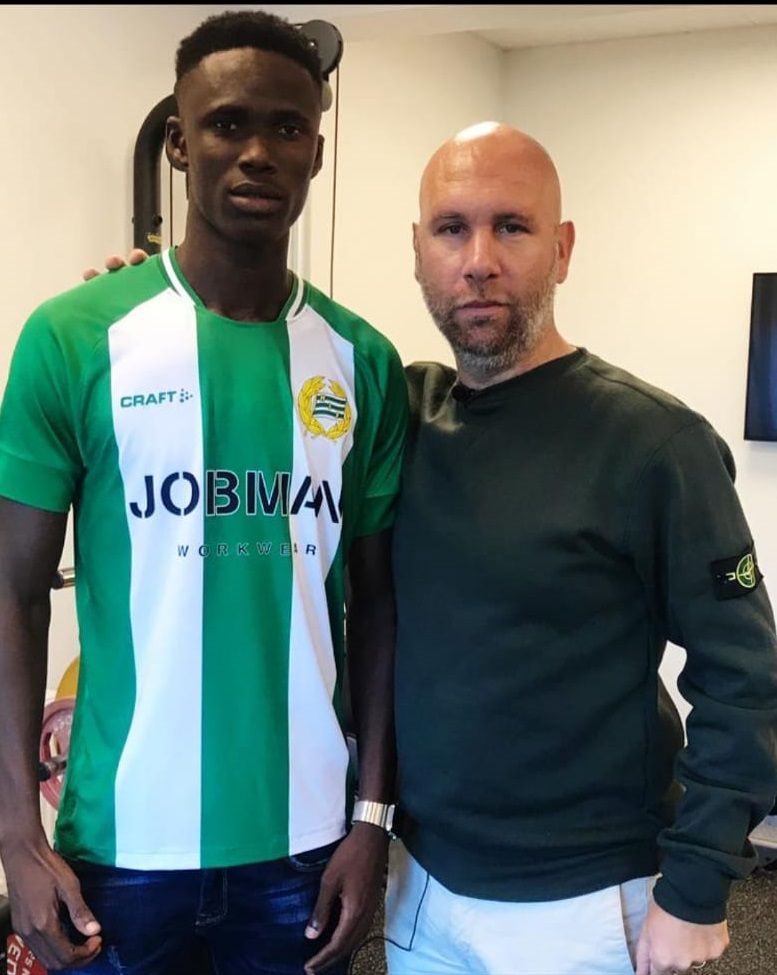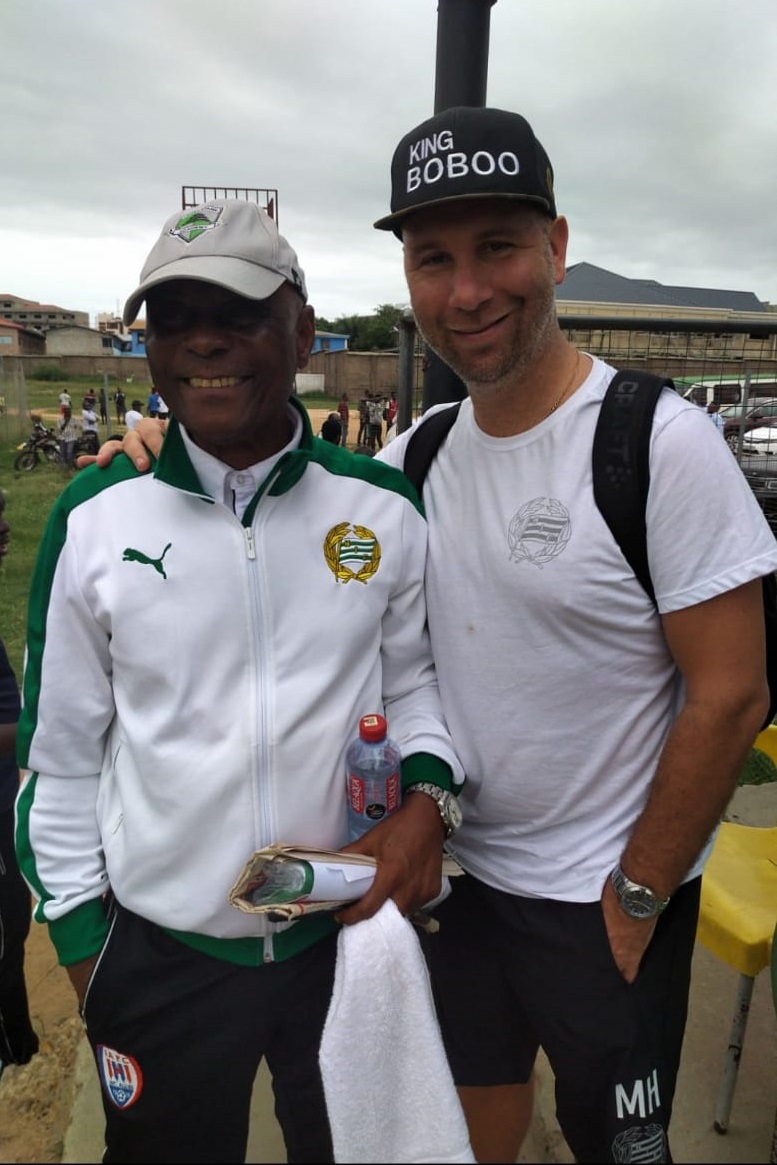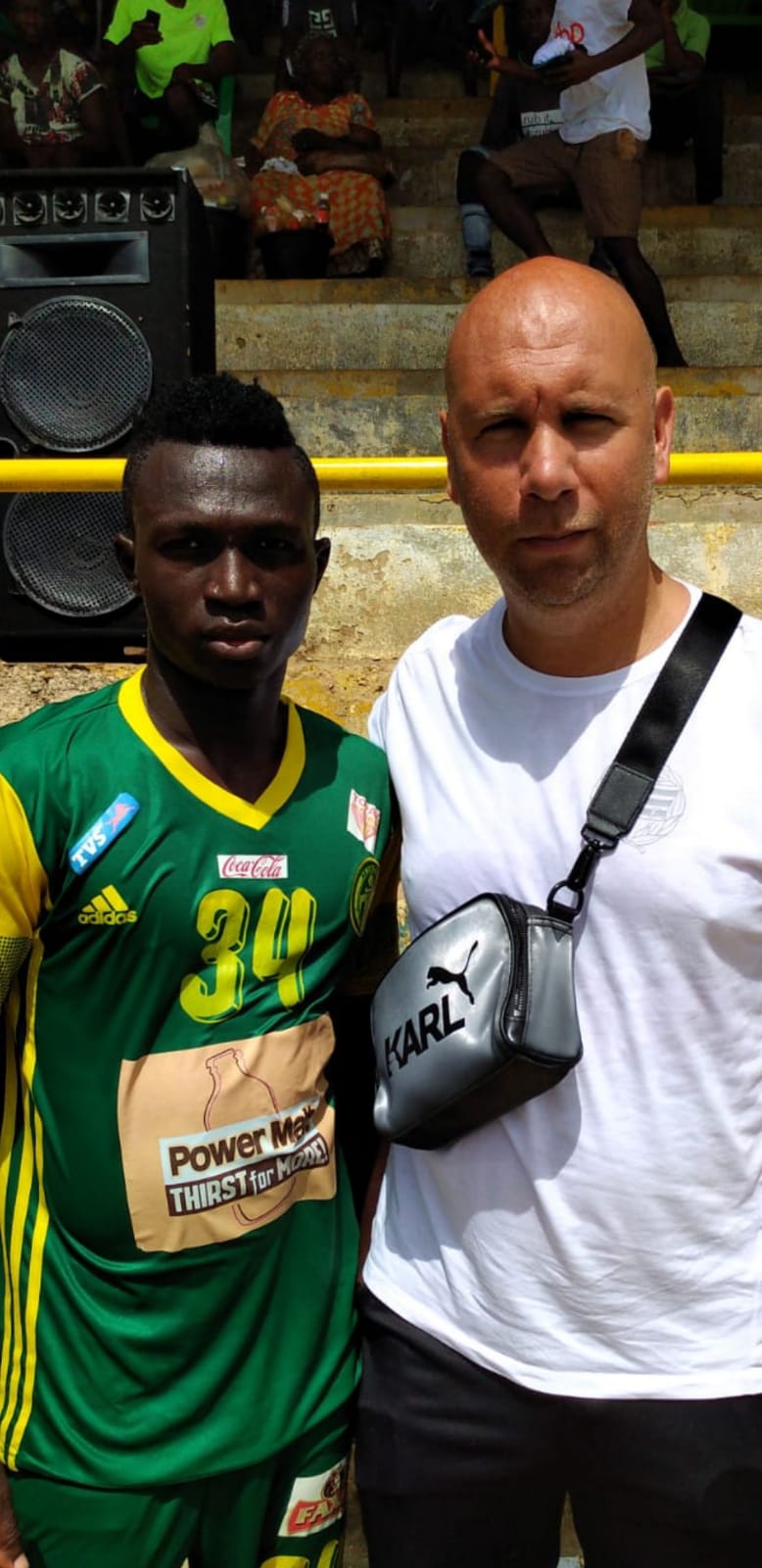TrScouts Ekibi olarak İsveç’te son yılların yükselen takımı Hammarby’nin Head Scout’u Mikael Hjelmberg ile kısa bir röportaj gerçekleştirdik. Kendisine sorularımızı içtenlikle yanıtladığı için teşekkür ederiz.
TrScouts: Could you please describe scouting in a detailed manner for us?
Mikael Hjelmberg: For me scouting is to identify the quality of a player in terms of technical, tactical, physical and mental ability of a player to fit the profile of club. The club structure and strategy is crucial when you scout players. That’s why some players don’t fit in one club but could be perfect for another club. Sometimes it could be to find potential and sometimes it is to find a mature player who can deliver on the pitch immediately.
TrScouts: Which levels did you pass to become a world class scout? What kind of attributes does a scout need to have in order to be taken into account by Football World?
Mikael Hjelmberg: I’m educated as a coach. With a Pro-license. I have been coach at a high level and I think that’s a big advantage for me. As a scout you also need to know how your coach think. Time and experience is also important. I am a much better scout this year then I was two years ago. My eye is more trained and I also have experienced how players from other countries needs time and how to be deal with.
TrScouts: What are the ways that scouts improve themselves? Can you advise a book, publication or article for receiving more information about scouting ?

TrScouts: What do you think about future of the scouting?
Mikael Hjelmberg: I think that data analysis will be a bigger part of the scouting work. Players analysis and data to collect valuable information. BUT, you still need to do the work with your eyes. Watching players live, try to meet the player to learn more about his personality. Data could help you, but the most valuable tool for a scout is his eyes and to trust them…
TrScouts: Which countries or areas do have the biggest potentials of players?
Mikael Hjelmberg: It depends on the size of your wallet. You have good players all around the world. How big is your scouting organisation? For me its much more important to have good control over some markets and go there a lot then have a lot of markets were you spend less time. For us Africa is a really interesting market and specialy the western part. I go there 4-6 times a year. Of course we need to explore new markets but first of all we try to be strong in specific markets before we explore new ones. For logical reasons Scandinavia is interesting for us. Even lower leagues in Brazil is interesting.
TrScouts: What are the contributions of developing football statistics and technologies for scouting? In your opinion, what are the positive and negative aspects of these Technologies?
Mikael Hjelmberg: The positive side is that you get more data information. Its easier to select players from a “gross” list with data. When the “gross” becomes “net” you need to see the players live. But data could definetly help you find the right qualities on players. The negative side could be if you trust the data too much. Data could never replace your eyes, it could help you on the way and be a valuable tool. Data could assist but never replace, that’s my opinion.
TrScouts: Is there a precise time period for scouting a player? If not, What is the ideal duration for you?
Mikael Hjelmberg: The ideal way for me is to see a player live 2-4 times and then if necessary watch the player more on video. I believe you can overscout a player. Watch the player too many times. Then
you ending up finding only the negative side of the player. Players inside your area is easy, but foreign players need to be scouted live 2-4 times if possible. But watching a player 10 times live I am not sure it will help you… Home and away games. Top teams or lower teams. Artificial or natural grass. Be aware of these things.
TrScouts: Which methods do you use for taking notes when you are watching the players? What are your advises to scouts for better noting?
Mikael Hjelmberg: You need to find your own way! Take notes and remember to write your report while its till fresh. Don’t wait. Focus on the quality more then his performance. Good players can have bad games and bad players can have good games. Qualities is more important then his performance. Of course good quality in combination with a good performance is the best. Trust your eyes! Use the same form when you take notes. Don’t over do it.

Mikael Hjelmberg: Watching players live is always better. You get a better feeling of the atmosphere and the tempo of the game. You also get the whole picture! Watching the movement of a striker when the ball is in the backline you never see in television. Television is following the ball. You don’t get the whole picture. You can always watch the player on video on television afterwards but the other way around is impossible. Of course it could save time watching the player on television but its never gonna be the same.
TrScouts: Which characteristics do you investigate the most in order to understand the potential of the players?
Mikael Hjelmberg: Definitely the mental part. Does he look you in the eyes, his body language. Talking to him, to get a better understanding of his personality. This is the hardest part, but also really important.
TrScouts: What are the differences between watching young talent and first eleven players?
Mikael Hjelmberg: Either you look at the potential. Where could he be in 1-3 years and how do we get there! Qualaties is definatly more important then performance. Scouting players who is expected to
be ready from day one, you need to be aware that performances is a factor. We don’t have
that much time to work with the player. He needs to be ready to performe from day one.
TrScouts: How can a scout identify whether a player who is a star in lower leagues (or teams) can settle the better leagues (or teams)? What do the scouts should pay attention in order to understand whether a player can be successful at the upper levels or not?
Mikael Hjelmberg: Good question. Again, the mentality of the player is important. Can he copy with a higher tempo. Can his qualities be used. You also need the trust from the coach. The coach is the only person who can make a good player bad, by not playing him or giving him trust. As a scout you depending sometimes on the coach. You also need to be aware that some players needs more time than others to adapt.
TrScouts: Have you ever appreciated a player who you did not like at first as watching? Which factors can change your idea?
Mikael Hjelmberg: Yes! In the beginning of my career I could look to much on his performance in the game, not his qualities. Good players can have bad games – remember! Decision making and outcome
is not the same. Players can make bad decisions but still the outcome is good and the other way around. lack of confidence etc. Look at the players qualities and not the performance/outcome AND watch the players more then once…

Mikael Hjelmberg: Talking to the player and getting a better picture is important. Characteristics as motivation, hard working mentality and determination is crucial. Talent could get you far but not the whole way. You need to be ready to work extremely hard to achive success.
TrScouts: How many countries are Hammarby Football Club following?
Mikael Hjelmberg: All Scandinavian countries. 2-3 countries in western Africa and Southern part of Brazil are countries we are travelling to regulary.
TrScouts: How many different countries did you go so as to watch players?
Mikael Hjelmberg: Oh, I would say 10-15 countries each year.
TrScouts: Mr.Hjelmberg thank you for this interview and your kindly answers.

